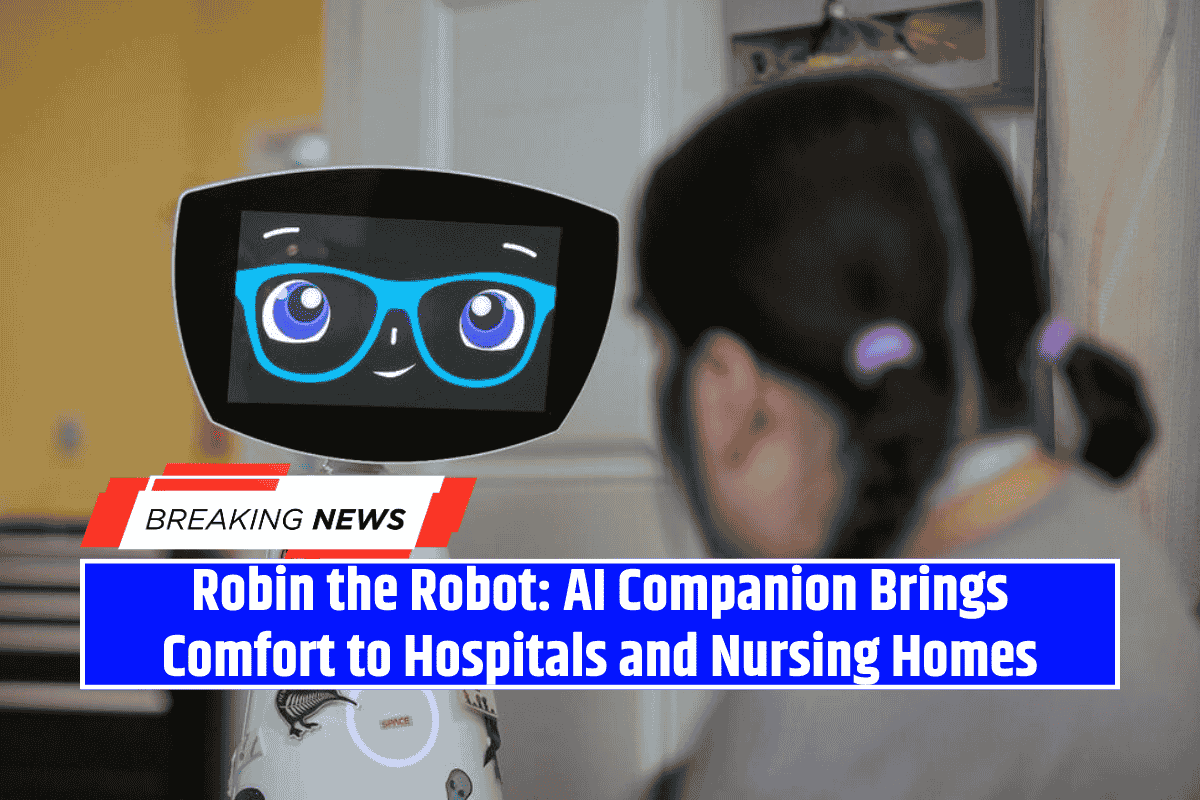When 6-year-old Luca, recently diagnosed with leukemia, walked the halls of UMass Memorial Children’s Medical Center, he was greeted by Robin the Robot, a 4-foot-tall AI-powered companion programmed to act like a child. Robin’s cheerful memory of Luca made his face “light up,” offering emotional comfort in a difficult time.
How Robin Works
Developed by Expper Technologies, Robin is a therapeutic robot designed to support patients emotionally while easing the strain on overworked medical staff. Robin operates about 30% autonomously, with remote operators guiding interactions under clinical staff supervision.
Each encounter adds to Robin’s growing emotional intelligence database, with long-term goals of becoming increasingly independent.
Robin’s triangular, hug-friendly frame and expressive cartoon-like face allow it to engage patients with activities such as:
- Playing favorite songs
- Cracking jokes with silly glasses
- Leading simple games like tic-tac-toe
- Mirroring patient emotions for empathy
Impact in Hospitals and Nursing Homes
Robin is now present in 30 health care facilities across California, Massachusetts, New York, and Indiana. In pediatric hospitals, Robin makes stressful procedures more approachable by demonstrating them through playful cartoons.
In nursing homes, Robin helps dementia patients with memory games, breathing exercises, and companionship. One patient even requested Robin during a panic attack, finding comfort in music and videos it shared.
Bridging Workforce Gaps
With the U.S. projected to face a shortage of up to 86,000 physicians in the next 11 years, Robin’s developers envision a broader role. Future plans include enabling Robin to:
- Measure patient vitals and share results with medical teams
- Assist elderly patients with daily tasks like dressing and bathroom visits
- Take on more responsibilities to support care delivery
CEO Karen Khachikyan stresses that Robin isn’t meant to replace health care workers, but rather to fill critical workforce gaps.
The Origins of Robin
Khachikyan began developing Robin during his Ph.D., inspired by his own experiences growing up in a single-parent household in Armenia. After testing Robin in various industries, an investor suggested pediatric hospitals, where children often feel lonely and stressed.
The robot was piloted at UCLA Mattel Children’s Hospital in 2020, and since then, its personality has evolved based on user feedback.
For example, when asked its favorite animal, Robin originally responded with “dog” or “cat.” Children laughed most when it said “chicken,” so that answer became part of its personality.
Designed by Users, Loved by Patients
Robin’s personality has been shaped directly by the children and patients it interacts with, making it more relatable and engaging.
Whether helping a child understand a medical procedure or bringing joy with a silly laugh, Robin has carved out a unique role in modern healthcare: a friend, a comforter, and a symbol of hope in challenging times.









